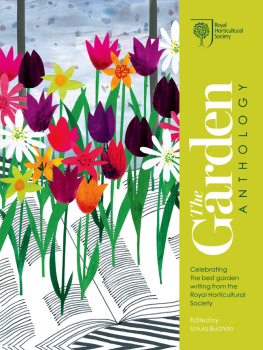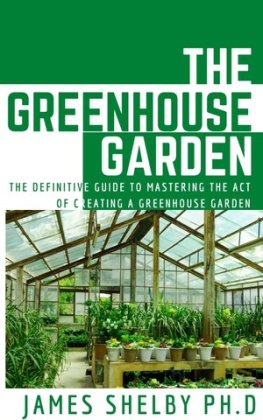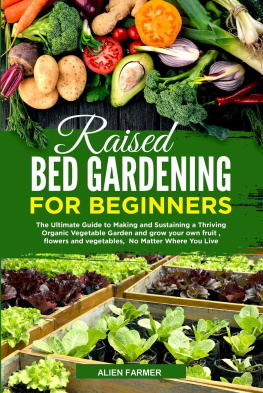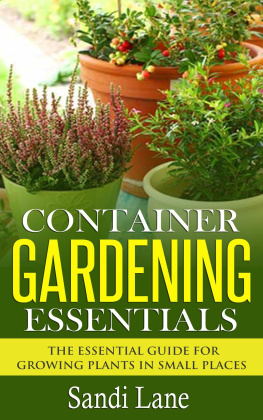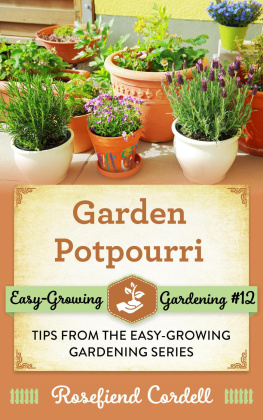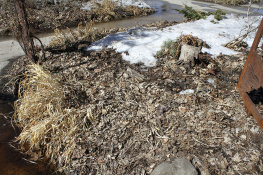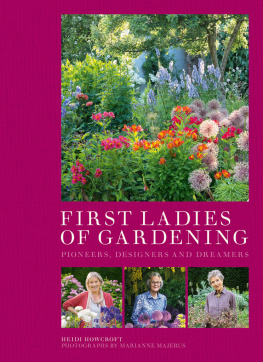
Celebrating
the best garden
writing from the
Royal Horticultural
Society
Edited by
Ursula Buchan
Illustrated by
Jenny Bowers

FRANCES LINCOLN LIMITED
PUBLISHERS

CONTENTS

F or many years, and from an office in Peterborough, the editorial team of The Gardenthe magazine for the Royal Horticultural Societyhas put together one of the leading international publications about plants, gardens and gardening. It is a tall order and one that I, and the team, relish.
The role of working on The Garden is divided into two. The first is the professional task of ensuring our vision for an article is realised on page and that it meets the needs of the members (gardeners). Is it correct? Does it read well? How does it look? Reading the thousands of words each month can be challenging, but the demand for accurate and timely information never leaves our minds. The second, more personal view, is the joy that revelling in your passion can bring. For many of those who work, and have worked, on The Garden, gardening is a genuine interest. Many of us have been lucky enough to marry our hobby with our day job.
But of course it is a collective contribution that informs our work. Whether the latest findings in the wider horticultural world, or feedback from RHS members and committees, we are never short on topics. So too the ongoingand ever-expandingwork of the Society. Colleagues across the charity help our workfrom advisory services at RHS Garden Wisley to the shows team; from the curatorial staff to scientific findings; from the membership teams to our advertising and production colleagues.
As you may expect, it is for the 400,000-plus RHS members that all this is done. They represent a broad range of interests in gardening, horticulture and garden creation; a vocal, passionate group of people who tell us if they disagree, and praise us when we have done well. I am always grateful for this constant and attentive audience.
Ultimately, The Garden is a magazine to be enjoyed, learned from and sometimes, challenged by; but it should always help readers connect with their gardening interests. Created by a dedicated team, working with superb photographers, illustrators, and some of the worlds leading writers, it is ultimately about sharing the enjoyable art of gardening with members. This splendid book, beautifully edited by Ursula Buchan, helps celebrate not only the written wordbut the very breadth of that art.
CHRIS YOUNG, Editor, The Garden magazine

T he Royal Horticultural Society was founded in 1804 (as the Horticultural Society of London) by a group of wealthy and horticulturally-inclined gentlemen, including John Wedgwood and Sir Joseph Banks. Its aims were to collect every information respecting the culture and treatment of all plants and trees, both culinary and ornamental, and one of its intentions was to disseminate this information to its members, known in those days as Fellows.
Initially, until 1830, this information was to be found in The Transactions of the Horticultural Society of London. Between 1846 and 1854 it was called The Journal, after which there was something of a hiatus, due to money troubles, until 1866, by which time the Society had received a new charter and become the Royal Horticultural Society. The volumes of The Journal, which began again at Volume 1 at this point, were then erratically published until the end of the century, the 25th being issued in 1901. In the 20th century, timings became regular, and indeed The Journal continued to be published during both world wars, although paper and ink restrictions reduced its size. It became monthly in 1934.
In 1975, The Journal underwent a drastic revamp: its name was changed to The Garden, colour pictures were integrated with the text, contributors began to be paid for their efforts, and the result was a more accessible, less scholarly but probably more suitable vehicle for a Society that was beginning to expand its membership beyond the core of well-heeled and knowledgeable Fellows based in the Southeast of England.
In 1979, a quarterly, The Plantsman, was founded, which was aimed at satisfying the most erudite members, leaving The Garden to appeal to the majority. Although there has always been editorial direction, the themes pursued in the publication are as much chosen by the members as by the Society. It is their preoccupations and interests, successes and failures that appear on many of the pages. As a house magazine, this is very right and proper.
In 1992, the format of The Garden was altered once more: the magazine increased in size, and the quality of paper and photographic images improved with it. Since then there have been some further changes to layout and content, prompted by the changing demographic of the membership, and also the fact that there are now RHS regional gardensin Yorkshire, Devon and Essex, as well as Surrey. Whenever there has been a revamp, there have been disgruntled members; so much is inevitable. But the nature of a house magazine is that it has to please most of the people most of the time, and those people may not be the most vocal or influential.

Over the years, The Garden has played an important role in the history of horticulture. It was the first to unveil important scientific results relating to gardeningsuch as the Reverend Miles Joseph Berkeleys discovery of the pathogen, Phytophthora infestans, causing potato blight, and Gregor Mendels experiments on geneticsas well as entering contentious debates on, for example, the use of peat in growing media, and climate change as it affects professional and amateur gardeners.
I became a member of the Royal Horticultural Society in 1975, the year I spent training as a gardener at Wisley, and have read, and profited in knowledge from the monthly copies of The Garden ever since. My first essay into journalism was an article in The Garden on the royal glasshouses at Laeken in Belgium in 1976, and I have continued to contribute to the magazine over the years, even writing a regular column, Garden Talk, from 2007 to 2010.
None of that, however, prepared me for the task of reading millions of words in order to put together this anthology. (The Greek origin of the word anthology is, most appropriately, flower-gathering.) It was a Herculean task and it would be wrong of me to say that I have read everything published since 1866. How could I? However, I have read a great deal and have learned much, which I hope will help me become a wiser, more thoughtful gardener. I am humbled by, and hugely admiring of, the accumulated knowledge to be found in those pages.

